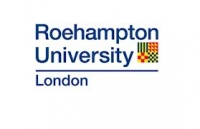The Sociology extended degree programmes include a foundation year, which will provide you with a sound introduction to key elements needed for studying Sociology at degree level. Our extended degree programme will provide you with a thorough and supportive academic preparation for study. The foundation year is carefully designed to build confidence in your abilities, develop essential academic and study skills, and provide you with the subject specific knowledge essential for success.
Sociology is about exploring the building blocks of society. It’s the study of the connections that bind us together: families, organisations and social groups.
This course will help you understand how societies are created and how they change. You will learn how educational attainment, ethnicity, gender and geography affects people’s place in society, including the resources they accumulate and the networks they build. You’ll leave with a different view of other individuals and the world around you. This course is taught with a practical approach, enabling you to apply your everyday experience to key issues and to gain critical-thinking skills that help you understand the theories that underpin these issues. Our expert teaching staff will develop your knowledge of what shapes society, considering issues such as politics, inequality, religion, the environment, human rights, family, identity, and the economy. You will explore issues through the context of health and illness, ‘race’ and ethnicity, power and politics, crime and deviance, and culture and communication.
Modules include ‘Contemporary Urban Life’, which combines debates on the condition of urban life and includes a field trip where your impressions of the city will be discussed and analysed. In ‘Becoming a Sociologist’, you will have the opportunity develop the required skillsets for your career by analysing our world through leading focus groups, conducting interviews, and surveys.
The Department of Social Sciences hosts the internationally-recognised Crucible Centre for Human Rights Research, which focuses on research in international relations, human rights, citizenship and migration. This means you will study in ana department driven by innovative research and will benefit from its excellent national and international links. The department is ranked 6th in the UK for the impact of our social sciences research (Research Excellence Framework 2014).
There will be many exciting opportunities to gain practical experiences to prepare you for your career. You will leave the course having developed your skills you need to succeed in your chosen career: analytical-thinking, communication and leadership skills.
Sociology develops essential skills needed for working in a variety of industries and businesses including the government, and charities. Our graduates work in a range of careers including in the criminal justice system, community development and social work. Others work in the media and campaigning organisations, or in marketing and public relations, development officers or work in the criminal justice system.


